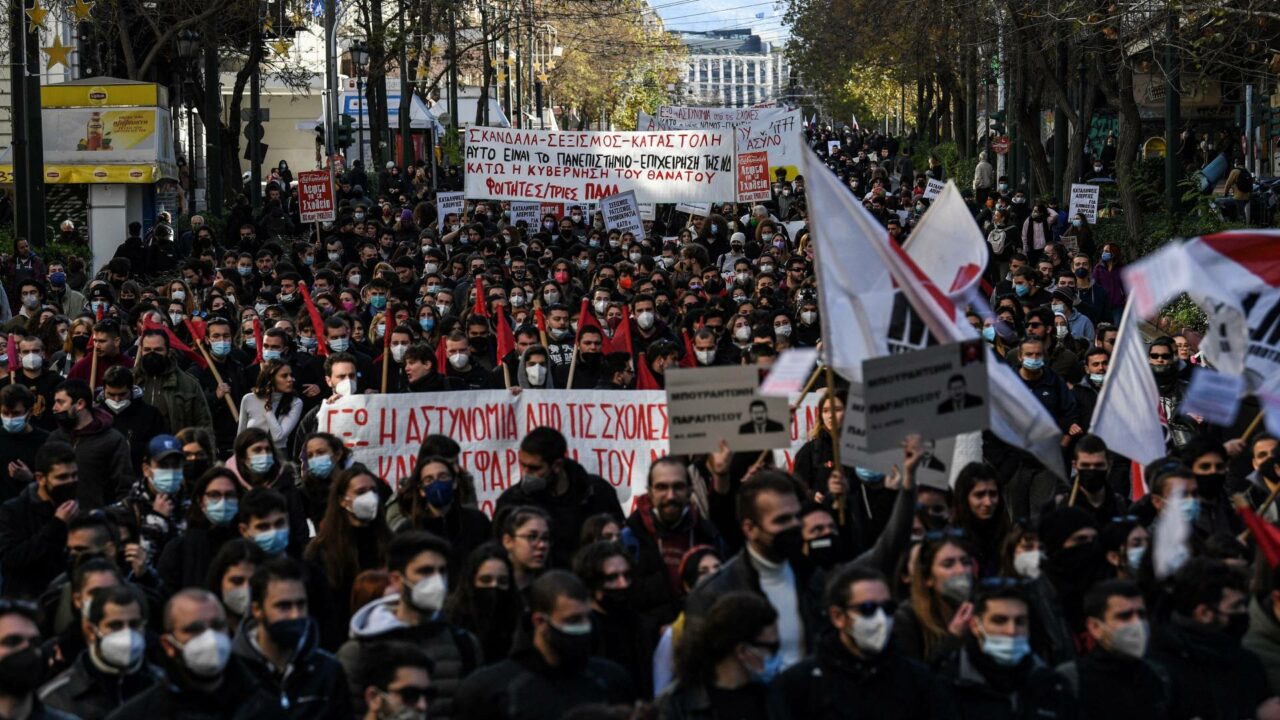We assess that the risk for businesses in Greece of being caught up in far-left violence is currently low.
This assessment was issued to clients of Dragonfly’s Security Intelligence & Analysis Service (SIAS) on 24 June 2022.
Different anarchist and far-left groups are leading protest camapaigns over three separate issues: a trial of neo-Nazi Golden Dawn members, a hunger strike by a jailed anarchist, and police deployments near universities. But so far, these protests have not caused much disruption to business operations. Nor have we seen arson or other small attacks around them, as has previously been the case during similar campaigns.
On current indications, the ongoing protest campaigns will probably remain relatively small; only dozens to a few hundred people have joined recent rallies, with turnout occasionally higher in cities like Athens and Thessaloniki. None of the campaigns appear to have gained significant support among the general population. And we have also seen no signs of convergence between the three campaigns.
The risk of organisations or their staff of being caught up in violent protests appears to be low. Most left-wing demonstrations in recent weeks have passed off peacefully, except for student demonstrations against police deployments in Athens and Thessaloniki. Participants at these have often violently clashed with police and thrown petrol bombs at them. But such violence has mostly remained confined to university campuses or in their close vicinity, away from tourist and business areas.
There are three key triggers in our assessment, which would lead to these protests becoming significantly larger and more violent. These are:
- Reports of excessive use of forces by police against protesters
- The imprisoned anarchist, Giannis Michailidis, dies on hunger strike
- Reports suggesting that sentences for Golden Dawn members may be reduced
Excessive police violence against protesters is the most likely trigger for protests to escalate. It has often been behind a growth in size of past demonstrations, including some in early 2021 against the same bill under which police are now being deployed near universities. And frequent violence at student protests carries the risk of protesters being severely injured. Mr Michailidis’ death is highly unlikely; although prisoners going on hunger strike is not uncommon in Greece, none have died in decades. Sentence reductions for Golden Dawn members is highly unlikely; prosecutors have called for increases.
Should any of these triggers materialise, we assess that turnout at subsequent demonstrations in central Athens and Thessaloniki would probably swell to between hundred and several thousand people. Based on past protests over similar issues, they would probably involve protesters throwing petrol bombs at police, who would be likely to use tear gas and water cannon. Damage to public and private property around protest sites would also be reasonably likely with protesters setting bins on fire and smashing shop windows.
Terrorism threat assessment
We are keeping our terrorism threat level for Greece at substantial. And unless protests become larger or more violent, we do not anticipate raising it. Far-left groups in Europe have previously mounted attacks in solidarity with protest campaigns; we recorded 30 far-left attacks in Greece between January-March 2021 during a hunger strike by a convicted terrorist. But while we have seen similar calls for solidarity with Mr Michailidis on left-wing extremist channels that we monitor, these have not yet translated into any attacks. This is probably due to his low public profile.
We assess that the authorities, rather than businesses or civilians, are likely to remain the primary target of far-left attacks. Based on our data, more than half of the 52 left-wing attacks we recorded in Greece in 2021 were against the security forces or government figures and institutions. And much of the hostility we have seen in our online monitoring in recent weeks was also against them. Precedent suggests that far-left attacks are highly likely to be low-impact, in the form of arson and aimed at avoiding casualties.
Image: Students demonstrate against police deployments inside universities, Athens, Greece, 20 January 2022 (Photo by ARIS MESSINIS/AFP via Getty Images).




